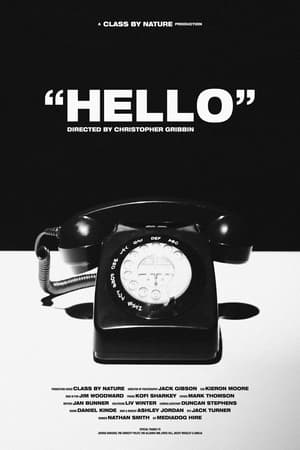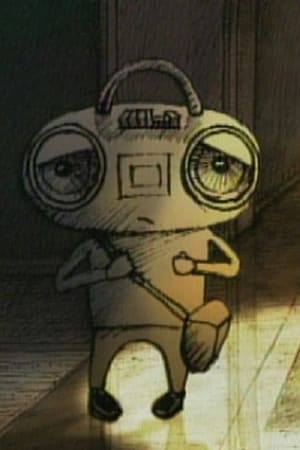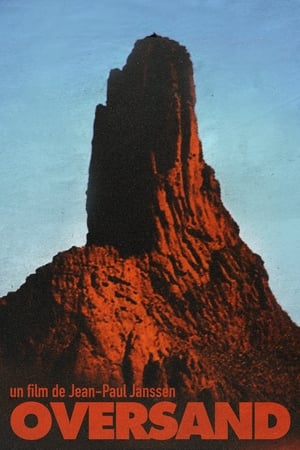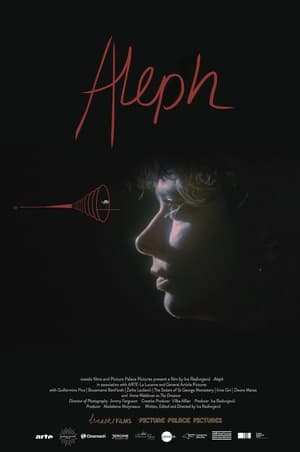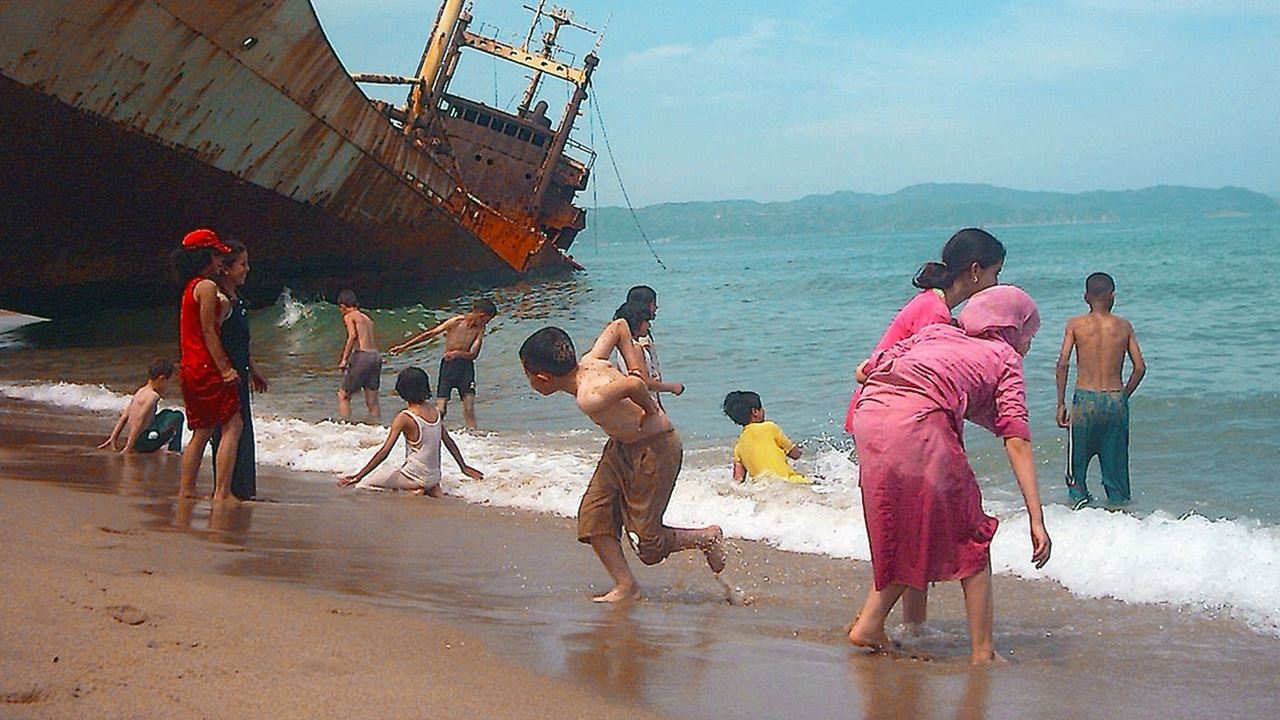
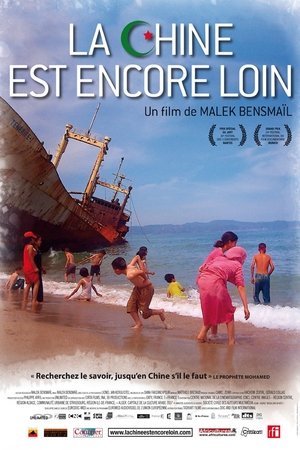
China Is Still Far(2010)
On November 1, 1954, near Ghassira, a small village lost in the Aurès, a couple of French teachers and an Algerian boss were the first civilian victims of a seven-year war which would lead to the independence of Algeria. More than fifty years later, Malek Bensmaïl returns to this Chaoui village, which has become “the cradle of the Algerian revolution”, to film, throughout the seasons, its inhabitants, its school and its children.

Movie: China Is Still Far

La Chine Est Encore Loin
HomePage
Overview
On November 1, 1954, near Ghassira, a small village lost in the Aurès, a couple of French teachers and an Algerian boss were the first civilian victims of a seven-year war which would lead to the independence of Algeria. More than fifty years later, Malek Bensmaïl returns to this Chaoui village, which has become “the cradle of the Algerian revolution”, to film, throughout the seasons, its inhabitants, its school and its children.
Release Date
2010-04-28
Average
10
Rating:
5.0 startsTagline
Genres
Languages:
العربيةFrançaisKeywords
Recommendations Movies
Hello(en)
When Max (Eric Stoltz), urged on by "Risk Management," a self-help book for the hapless, decides to approach his fellow ferry-commuter Rory (Susanna Thompson), he hopes simply saying hello might change his life for the better. But Rory only accepts contact by contract. Max finds he can play along. As the two negotiate a whirlwind relationship on paper, Rory slowly lets down her guard; but when her unresolved personal life intervenes in the form of Donald (Kevin Tighe), Max must manage a little more risk than he bargained on.
Hello(en)
The film tells the story of three best friends named Ako, Aki and Awang, who are well-known in their village for their mischievous and humourous pranks. The trio work for Pak Man. One day, they are assigned to pick up his daughter Misha, who has just returned from overseas and dreams of becoming a doctor. The trio have been in love with her for a long time but she does not pay them any heed. When Misha is robbed by a snatch thief one day, she is rescued by a doctor named Shafiq. Her face reminds the doctor of his late wife, and he begins to pursue her, which annoys the trio.
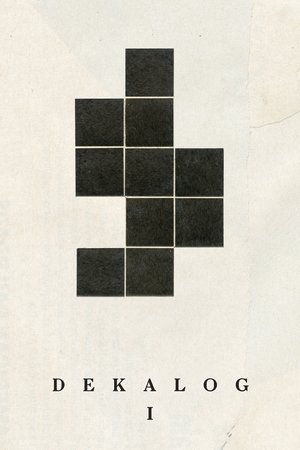 8.1
8.1Decalogue I(pl)
Krzysztof, a semantics professor and computer hobbyist, is raising his young son, Paweł, to look to science for answers, while Irena, Paweł’s aunt, lives a life rooted in faith. Over the course of one day, both adults are forced to question their belief systems.
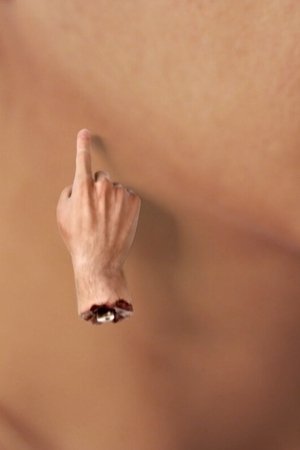 6.1
6.1Hello(en)
Hello explores changes in two people’s working lives: a Mexican trash picker who separates and collects recyclable materials from landfills to sell by the kilo, and a German freelance computer-animation designer working for the advertising industry in Berlin. The double interview is controlled and manipulated by a computer-generated severed hand which Maria describes as an object once discovered in the trash while working in the violent northern town of Mexicali. This CGI hand was in turn produced by Max, who was born with no arms, and sought refuge in computer-imaging as a means to operate and manipulate a digital reality.
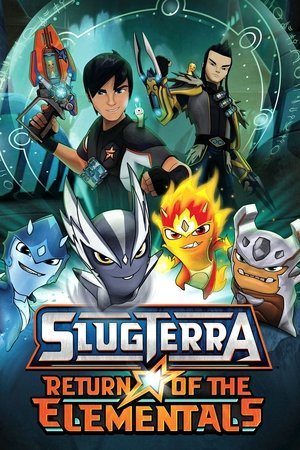 7.0
7.0SlugTerra: Return of the Elementals(en)
A new member has joined Eli and the Shane Gang! Junjie, once the protector of the Eastern Caverns, is a master of the slugslinging art of Slug Fu! But even with the power of five slingers, the Shane Gang find themselves in over their heads as they race across The 99 Caverns in search of the Legendary Elemental Slugs. The five Elementals are ancient slugs of great power, and the forbearers of all slugs found in SlugTerra today. In the wrong hands, they could bring Slugterra to the brink of destruction. So when an evil alliance starts hunting down the Elementals, Eli and his friends — old and new — take off in pursuit of the greatest threat their world has ever faced!
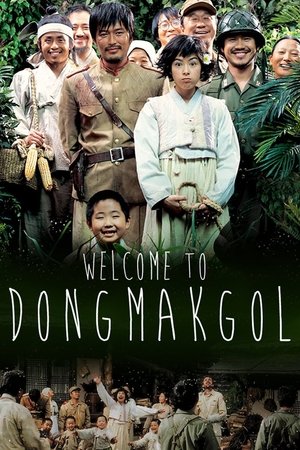 7.5
7.5Welcome to Dongmakgol(ko)
Based on the long running play by Jang Jin, the story is set in Korea during the Korean War in 1950. Soldiers from both the North and South, as well as an American pilot, find themselves in a secluded and naively idealistic village, its residents unaware of the outside world, including the war.
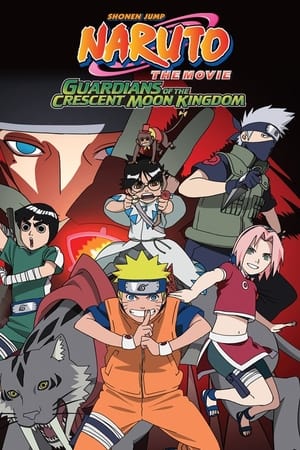 7.1
7.1Naruto the Movie: Guardians of the Crescent Moon Kingdom(ja)
Naruto Uzumaki, Kakashi Hatake, Sakura Haruno, and Rock Lee are assigned to protect the prince of the Land of the Moon, Michiru, during his world trip; other escorts had been hired, but quit due to being treated poorly. The Land of the Moon is a very wealthy nation, so Michiru tends to buy whatever he wants, and has a very materialistic worldview. His Hikaru, also acts in much the same manner.
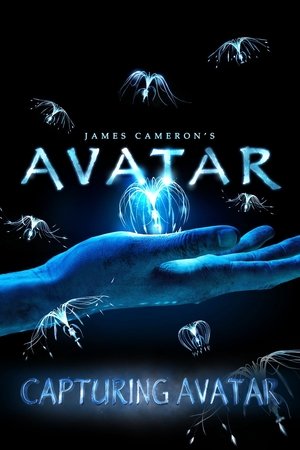 7.0
7.0Capturing Avatar(en)
Capturing Avatar is a feature length behind-the-scenes documentary about the making of Avatar. It uses footage from the film's development, as well as stock footage from as far back as the production of Titanic in 1995. Also included are numerous interviews with cast, artists, and other crew members. The documentary was released as a bonus feature on the extended collector's edition of Avatar.
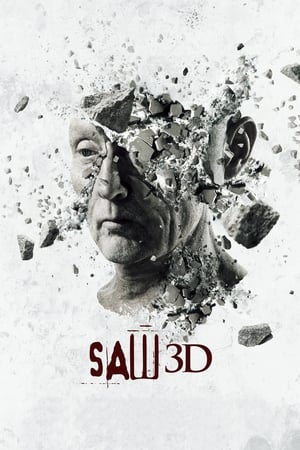 6.0
6.0Saw 3D(en)
As a deadly battle rages over Jigsaw's brutal legacy, a group of Jigsaw survivors gathers to seek the support of self-help guru and fellow survivor Bobby Dagen, a man whose own dark secrets unleash a new wave of terror.
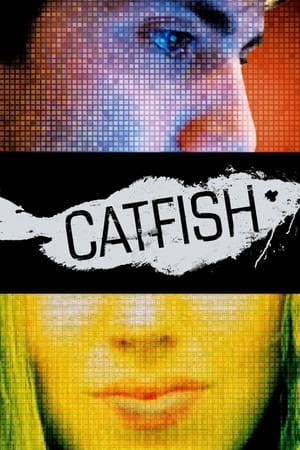 6.8
6.8Catfish(en)
Nev, a 24-year-old New York-based photographer, has no idea what he's in for when Abby, an eight-year-old girl from rural Michigan, contacts him on Facebook, seeking permission to paint one of his photographs. When he receives her remarkable painting, Nev begins a friendship and correspondence with Abby's family. But things really get interesting when he develops a cyber-romance with Abby's attractive older sister, Megan, a musician and model. Prompted by some startling revelations about Megan, Nev and his buddies embark on a road trip in search of the truth.
 5.2
5.2Police Academy 6: City Under Siege(en)
Our favourite police men are called together to deal with a gang who rob banks and jewelers. Using their various talents as well as their extraordinary luck, the crooks stand no chance against our men and women in blue.
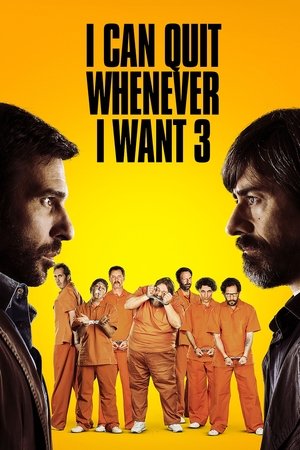 7.4
7.4I Can Quit Whenever I Want 3: Ad Honorem(it)
Has been an year since Pietro Zinni's gang got caught in the Sopox production laboratory and each of them locked up in different jails. From Regina Coeli jail, Pietro keep warning the authorities a fool syntetized nerve gas and he is ready to make a killing, but no one takes him seriously.
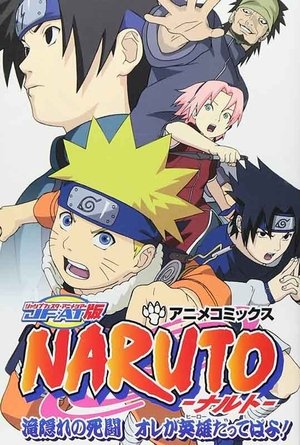 7.2
7.2Naruto OVA 2: The Lost Story - Mission Protect the Waterfall Village!(ja)
Naruto and his friends must get back a jug of stolen holy water from a band of higher class ninjas.
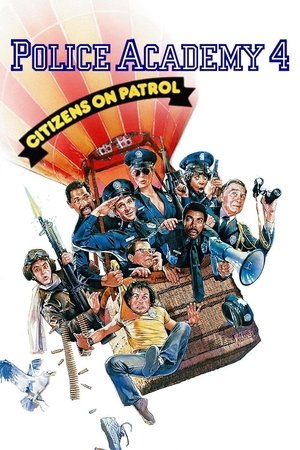 5.5
5.5Police Academy 4: Citizens on Patrol(en)
A new batch of recruits arrives at Police Academy, this time a group of civilian volunteers who have joined Commandant Lassard's new Citizens on Patrol program. Although the community relations project has strong governmental support, a disgusted Captain Harris is determined to see it fail.
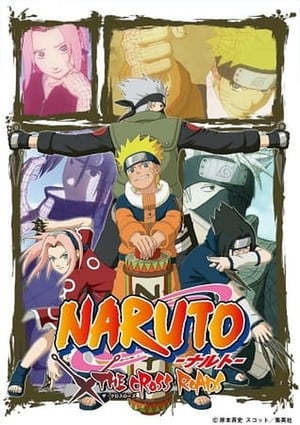 6.6
6.6Naruto OVA 6: The Cross Roads(ja)
Naruto: The Cross Roads (Za Kurosurozu) is the sixth Naruto OVA. It uses the same CGI graphics as Naruto: Ultimate Ninja Storm and was released during Naruto: Shippuden. This OVA premiered at the Jump Festa Anime Tour 2009. Between the Prologue - Land of Waves and Chunin Exams arcs, Team 7 is waiting for Kakashi, who is late again, to start a new mission (B-ranked as Sasuke states). The team sets off while Kakashi explains that Genmai from the Inaho Village is missing, who has vanished in the hills.
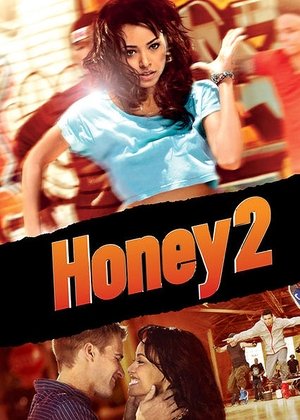 6.3
6.3Honey 2(en)
After a brush with the law, Maria has returned to her gritty Bronx roots to rebuild her life with nothing but a talent for street dance and a burning ambition to prove herself.
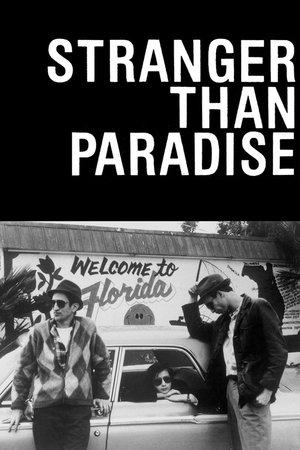 7.2
7.2Stranger Than Paradise(en)
A Hungarian immigrant, his friend, and his cousin go on an unpredictable adventure across America.
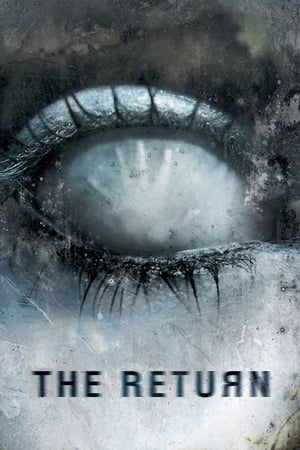 6.0
6.0The Return(en)
Joanna Mills has a successful career but feels her personal life is spinning out of control. She has few friends, an estranged father, and a crazy ex-boyfriend who is stalking her. Joanna begins having terrifying visions of a woman's murder, and it seems that she is the killer's next target. Determined to solve the mystery and escape her apparent fate, Joanna follows her visions to the victim's hometown and finds that some secrets just do not stay buried.
Similar Movies
 7.0
7.0143 Sahara Street(fr)
Alone in a small white house on the edge of national road 1, the Trans-Saharan road, which connects Algiers to Tamanrasset crossing the immensity of the desert, Malika, 74, one day opened her door to the director Hassen Ferhani, who came there to scout with his friend Chawki Amari, journalist at El Watan and author of the story Nationale 1 which relates his journey on this north-south axis of more than 2000 km. The Malika of Amari's novel, which Ferhani admits to having first perceived as a "literary fantasy", suddenly takes on an unsuspected human depth in this environment naturally hostile to man. She lends herself to the film project as she welcomes her clients, with an economy of gestures and words, an impression reinforced by the mystery that surrounds her and the rare elements of her biography which suggest that she is not from the region, that she left the fertile north of Algeria to settle in the desert where she lives with a dog and a cat.
 7.6
7.6The Zerda or the Songs of Forgetting(fr)
“La Zerda and the songs of oblivion” (1982) is one of only two films made by the Algerian novelist Assia Djebar, with “La Nouba des femmes du mont Chenoua” (1977). Powerful poetic essay based on archives, in which Assia Djebar – in collaboration with the poet Malek Alloula and the composer Ahmed Essyad – deconstructs the French colonial propaganda of the Pathé-Gaumont newsreels from 1912 to 1942, to reveal the signs of revolt among the subjugated North African population. Through the reassembly of these propaganda images, Djebar recovers the history of the Zerda ceremonies, suggesting that the power and mysticism of this tradition were obliterated and erased by the predatory voyeurism of the colonial gaze. This very gaze is thus subverted and a hidden tradition of resistance and struggle is revealed, against any exoticizing and orientalist temptation.
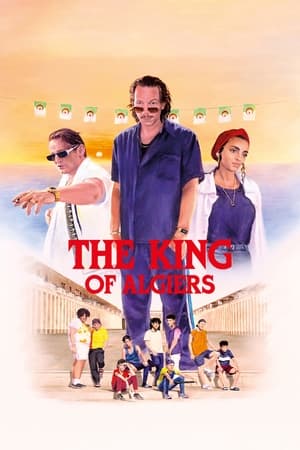 6.0
6.0The King of Algiers(fr)
Omar, better known as Omar the Strawberry, is an old-fashioned bandit. Forced to flee to Algeria, he makes a living out of petty crime, accompanied by his famous sidekick Roger. After decades of ruling the French criminal underworld, they must come to terms with their new life together, which until now has been one of debauchery and violence.
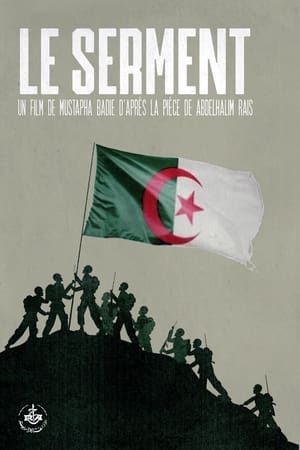 10.0
10.0Le Serment(ar)
The Oath, a TV film produced by Algerian television in 1963 following the end of the war of independence, tells the story of young Algerians who joined the resistance after the bloody repressions of May 1945 in Constantinois by the French colonial army .
 7.9
7.9The Battle of Algiers(it)
Tracing the struggle of the Algerian Front de Liberation Nationale to gain freedom from French colonial rule as seen through the eyes of Ali from his start as a petty thief to his rise to prominence in the organisation and capture by the French in 1957. The film traces the rebels' struggle and the increasingly extreme measures taken by the French government to quell the revolt.
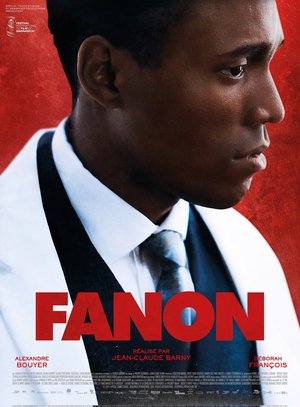 6.4
6.4Fanon(fr)
Frantz Fanon, a French psychiatrist from Martinique, has just been appointed head of department at the psychiatric hospital in Blida, Algeria. His methods contrast with those of the other doctors in a context of colonization. A biopic in the heart of the Algerian war where a fight is waged in the name of Humanity.
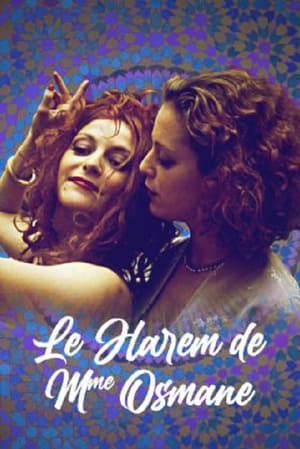 6.2
6.2The Harem of Madame Osmane(fr)
In Algiers in 1993, while the civil war is starting, Mrs Osmane's tenants have to endure her bad temper. Her husband left her and the fear to lose her respectability haunt her. The former member of the Resistance during the Independence War persists in controlling the slightest moves of the households rather than struggle against her own frustrations. Learning her daughter is in love, the possibility of finding herself alone will push her to the limit: The symbolical Mrs Osmane "harem" is about to collapse.
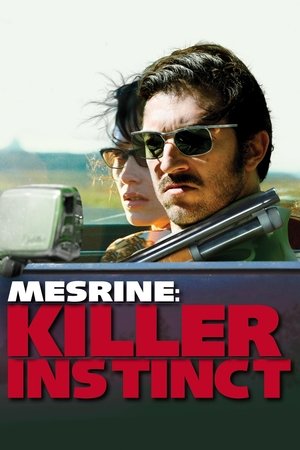 7.3
7.3Mesrine: Killer Instinct(fr)
Jacques Mesrine, a loyal son and dedicated soldier, is back home and living with his parents after serving in the Algerian War. Soon he is seduced by the neon glamour of sixties Paris and the easy money it presents. Mentored by Guido, Mesrine turns his back on middle class law-abiding and soon moves swiftly up the criminal ladder.
 6.3
6.3Intimate Enemies(fr)
A drama following a French platoon during Algeria's war of independence.
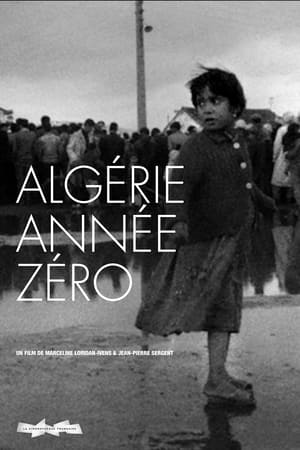 10.0
10.0Algeria, Year Zero(fr)
Documentary on the beginnings of Algerian independence filmed during the summer of 1962 in Algiers. The film was banned in France and Algeria but won the Grand Prize at the Leipzig International Film Festival in 1965. Out of friendship, the production company Images de France sent an operator, Bruno Muel, who later declared: "For those who were called to Algeria (for me, 1956-58), participating in a film on independence was a victory over horror, lies and absurdity. It was also the beginning of my commitment to the cinema."
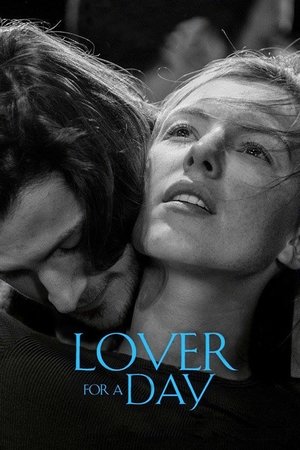 6.3
6.3Lover for a Day(fr)
After a bad breakup, a college-aged Parisian moves into her father's flat only to discover that he is living with his new girlfriend - a young woman her age.
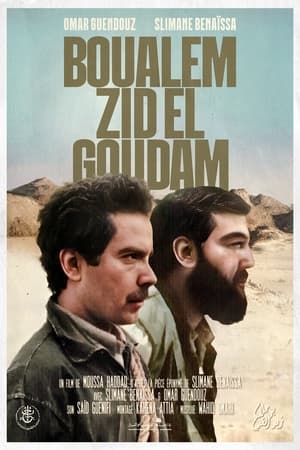 10.0
10.0Boualem Zid El Goudam(ar)
Two travelers, Boualem and Sekfali, cross the hostile and endless desert. Boualem pulls a cart on which old books, pictures, relics and memories of Sekfali are piled up. Two men, two attitudes towards life, two visions of the world. Where do they come from, where are they going? The journey would be completely calm and happy if each of them were not inhabited by their pasts, determining their different visions of the future. Boualem's childhood was marked by the Algerian war of liberation. His dream is to achieve a socialist society, which is for him the only path to salvation. Sekfali, who tries to dissuade Boualem from continuing the journey, has the attitude of an aristocrat. For him, socialism is a heresy and people do not like responsibility, they only act if a leader gives them the injunction.
 6.0
6.0A Captain's Honor(fr)
During a televised debate on the Algerian war in the early 1980s, Professor Paulet denounced the methods of Captain Caron, killed in action in 1957. The widow of the captain, Patricia, decided to file a defamation suit.
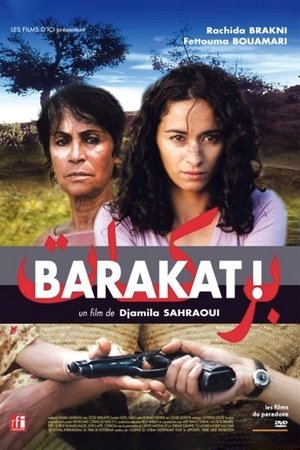 4.8
4.8Enough!(ar)
Set amidst the civil war of Algeria in the 1990s, Enough! is the story of two women. Emel is a Westerner whose husband, a journalist, is missing - perhaps kidnapped or even killed for articles he's written.
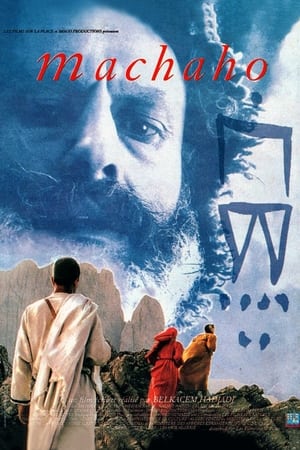 10.0
10.0Machaho(ar)
In Kabylie, rude mountain region in the north of Algeria. Arezki finds the young Larbi exhausted, buried under the snow. He takes him in and nurses him until he's recovered. The host seduces Arezki's daughter. She is pregnant. This is an unsupportable shame to the father of the female sinner. Arezki claims vengeance. He leaves his house and takes the oath not to come back before having killed Larbi who betrayed him under his own roof.
 6.8
6.8Far from Men(fr)
A French teacher in a small Algerian village during the Algerian War forms an unexpected bond with a dissident who is ordered to be turned in to the authorities.
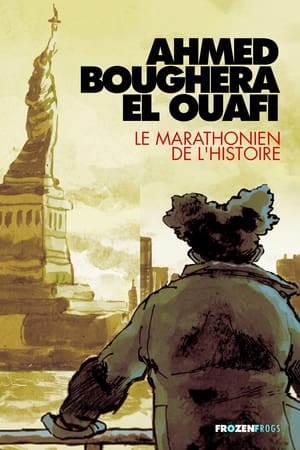 10.0
10.0El Ouafi Boughera, The marathon runner of history(cn)
On August 5, 1928, after 2 hours and 32 minutes of racing, the 71st rooster wearing the bib entered the Olympic stadium in Amsterdam. Ahmed El Ouafi Bouguéra wins the gold medal and becomes the first Olympic champion from the African continent. He achieved his feat under the tricolor flag. The start of his real marathon is underway. The history of sport extends to the history of Algeria and France. This documentary retraces the different stages of the life of this great champion, not only the history of sport but also the great story. Archival photographs and interviews mingle with the painted paintings. The series thus once again gives voice to this forgotten hero, one of the great heroes of immigration who defended France for more than a century.
 5.0
5.0A Son of the Sahara(en)
As a boy, Raoul is reared by an Arab tribe in Algerian Sahara. Years later, as a refined Europeanized gentleman, he falls in love with Barbara, an officer's daughter, who rejects him when she discovers his background. Affecting a raid, he captures her and then secretly buys her at a slave auction. When she is rescued by French troops, however, his ancestry is established and they find happiness together.
